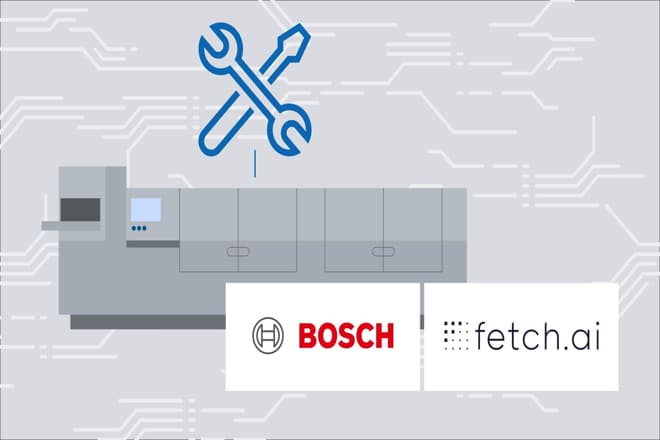Engineering giant Bosch is turning to Cambridge-based startup Fetch.ai for innovative “AIoT” trials.
Fetch.ai is a blockchain or distributed ledger, aiming to build a decentralised network of autonomous “agents” that perform real-world tasks.
Bosch’s team from its Economy of Things (EoT) project launched machine learning trials on the Fetch.ai Collective Learning network. By combining AI and blockchain technologies via Fetch.ai’s network, Bosch expects to be able to predict potential failures of its machinery while retaining data privacy.
Dr Alexander Poddey, principal investigator of Digital Socio-Economy, Cryptology, and AI in the EoT project said, “Secure and trustworthy computation across several participants, while keeping the raw data and possibly even the learned model private is key to unlock the true value of distributed data.”
Predictive maintenance is one of the most exciting industrial benefits of the IoT—helping to improve safety and minimise the costs of downtime or more extensive repairs. However, it’s not a simple task.
“Using machine learning to identify equipment failures is a difficult problem to solve as these events occur very infrequently. The collective learning system enables the different manufactures that use Bosch’s equipment to share information with each other without sharing the raw data, thereby greatly improving their ability to detect failures, and thus improve the efficiency of their operations,” said Jonathan Ward, CTO of Fetch.ai.












